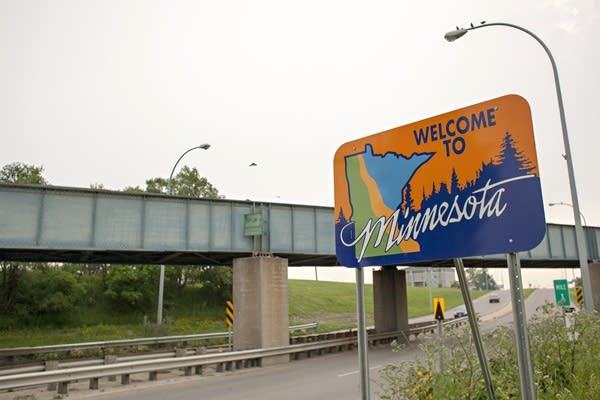Ask a 'sotan: Revisiting 'Minnesota Nice'

Ask a 'sotan is an occasional series exploring questions from curious Minnesotans about our state. Have a question about life in Minnesota? Ask it here.
You’ve probably heard this one before: the phrase “Minnesota Nice” either means locals are simply polite to a fault, or they’re overly passive-aggressive. Oh, and the phrase’s origins can be traced back to the region’s Scandinavian roots.
Those theories and observations are often tied to the consistent coverage Minnesota Nice has received over the years.
MPR News listener Alicia Menanteau cited some of that information when she inquired about the saying.
Create a More Connected Minnesota
MPR News is your trusted resource for the news you need. With your support, MPR News brings accessible, courageous journalism and authentic conversation to everyone - free of paywalls and barriers. Your gift makes a difference.
“I was born in the Twin Cities. I grew up there, went to the University of Minnesota. I moved away for grad school but still have lots of family and longtime friends in the Twin Cities,” Menanteau said.
Menanteau herself still resides here part of the year while splitting time at her home in Florida. She’s a sociologist and still has a lot of curiosity surrounding the region’s famous — or maybe infamous — catchphrase.
“I’d be interested in understanding where this whole expression comes from.”
Germans vs. Norwegians
For answers, we reached out to another expert on sociology, Lisa Waldner, who is a professor at the University of St. Thomas. Waldner said she has followed some of the historical and cultural aspects of Minnesota Nice.
As for its origins, she acknowledged the Scandinavian connection that stems from immigrants who settled in Minnesota more than a century ago, bringing with them personalities that centered around the idea of being polite and helpful, but non-confrontational and socially guarded as well.
Adding another layer to the hypothesis, Waldner said that while there’s no definitive documentation, there’s anecdotal evidence of immigrants from other countries in Northern Europe who didn’t always get along with immigrants from other countries after settling in Minnesota.
“People tended to go to different geographical pockets in the state. And so you would kind of have Norwegians clustered in certain areas and Germans clustered in certain areas. You co-existed, but you didn’t intermingle,” Waldner said.
And when you live in a rural area, and you are sometimes dependent on neighbors for survival, that polite persona trumps any hostile feelings, she said.
“If your plow broke down in the middle of harvest season, you might have to ask the Norwegian farmer down the road for some assistance.”
The harmful effect
Another talking point that hangs from the Minnesota Nice conversation branch is the idea that the regional persona makes it harder for transplants to make deep friendships here or feel comfortable in the workplace.
Waldner takes it a step further and suggests that lifelong residents use the reputation as a way to sidestep conversations about important social issues, such as race or gender.
“I think it can also be a way to sort of deny that if you’re a white person that there’s even an issue, cause you can just say, ‘Well, I’m polite to everyone, I’m Minnesota Nice so we don’t have issues around race,’” she said.
Waldner said she doesn’t think there’s malicious intent behind it, but rather a form of denial that can perpetuate institutional racism when it comes to gaps in areas like housing and education.
When presented with these answers, Menanteau said “I think what she’s saying aligns with my understanding of normative behavior in Minnesota.” She adds to what Waldner said about the ripple effect, noting that it can produce class-separation. “In a typical neighborhood, you might see some rental homes, you might see people who own expensive homes.”
Both women say their feelings about the social effect doesn’t mean the region should ditch the Minnesota Nice slogan people proudly wear on their sleeves. Instead, they say it should be used as an opportunity to have more authentic conversations about important topics and not shy away from them.
Menanteau says that those conversations can still have that polite Minnesota charm.